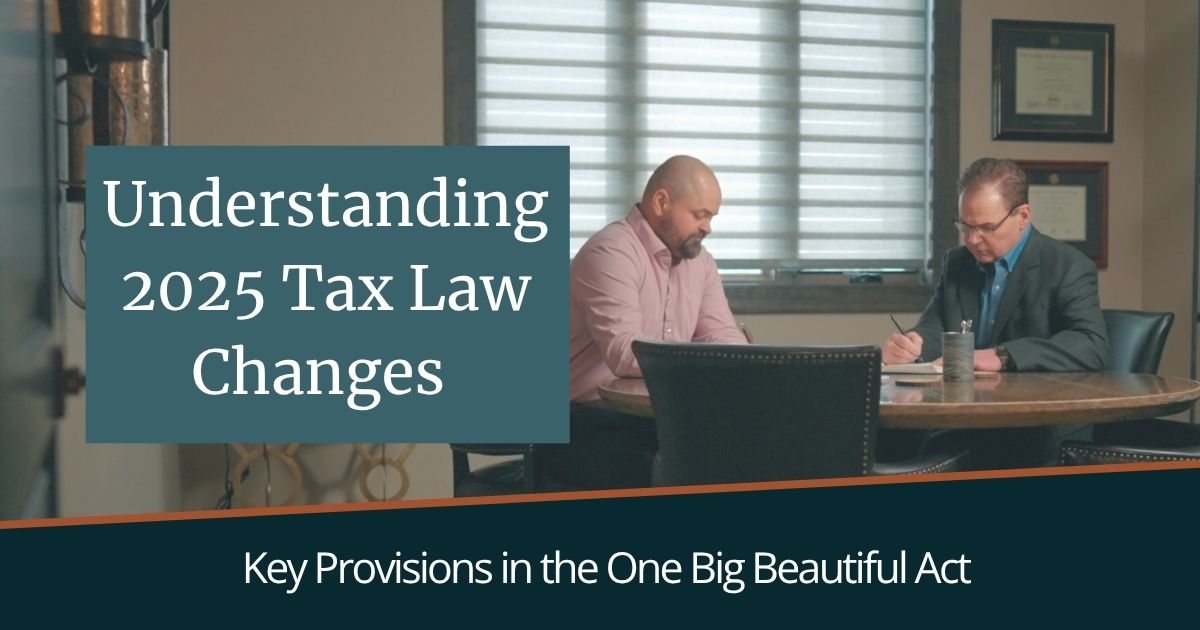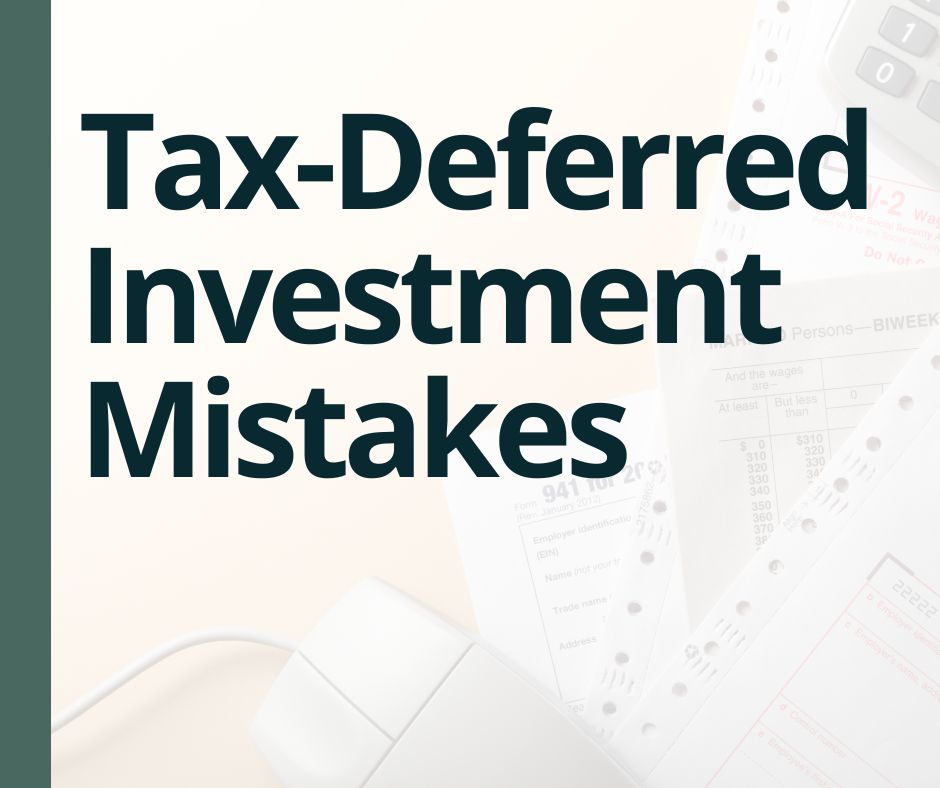On July 4, President Trump signed the “One Big Beautiful Bill Act” into law, enacting sweeping legislation that makes changes to everything from the debt ceiling to Medicaid to immigration to taxes.1
While the new law is one of the most fiercely debated in recent memory, it also has many of our clients asking what it all means for them.
Rather than diving into the political debate, we want to highlight the key provisions that could affect your taxes, retirement, and other areas we regularly plan for together.
While some of it may not apply to you, it could apply to members of your family. If so, feel free to share this information with them.
If you have any questions or concerns, please reach out. Remember, the Cornerstone team is here to help provide financial clarity.
Changes to Tax Deductions and Exemptions
1During President Trump’s first term, Congress passed the Tax Cuts and Jobs Act, which made major changes to the tax code. Many of those changes were set to expire at the end of this year, but the BBB has made them permanent. That means all current tax rates and brackets will continue for the foreseeable future.
In addition, several tax deductions are set to increase under the BBB.
For example:
- The standard deduction has been raised from $15,000 to $15,750 for single individuals, and from $30,000 to $31,500 for married couples filing jointly.
- Future increases will be indexed to inflation.
For those who choose to itemize their tax deductions:
- The SALT (state and local tax) deduction limit is increased $10,000 to $40,000 and this deduction will increase by 1% each year until 2030, when the cap reverts back to $10,000.
- Note that the SALT deduction begins to phase out for taxpayers earning $500,000 or more in annual income.
Lastly, the exemption on estate and gift taxes is raised to:
- $15 million (up from $13.99 million) for singles
- $30 million (up from $27.98 million) for married couples
Changes to Tax Credits1
The BBB also makes some important changes to several types of tax credits — raising one while eliminating others.
- The child tax credit, previously set to expire, has now been permanently increased to $2,200. (Note: If you see the $2,500 figure, that was from an earlier version of the bill and is no longer accurate.)
- The BBB eliminates several “green” tax credits:
- Electric vehicle credits (new and used) end September 30, 2025.
- Energy-efficient heating/cooling system credits (e.g., rooftop solar panels) end December 31.
If you’re considering “going green,” it may be best to act soon!
Changes That Could (Potentially) Affect
Social Security Taxes1
This could have been included under tax deductions, but due to its complexity, it deserves its own section.
After the BBB became law, many Social Security beneficiaries received an email stating the law would eliminate federal income taxes on Social Security benefits for most recipients.² This claim has also circulated on social media.
That statement is not entirely accurate. The BBB does not directly change how Social Security benefits are taxed.
Instead, the law creates a temporary tax deduction for seniors:
- Individuals aged 65+ can claim a $6,000 deduction if income is $75,000 or less.
- Married couples filing jointly can claim $12,000 if income is $150,000 or less.
- The deduction phases out entirely at $175,000 for individuals and $250,000 for couples.
What does this all have to do with Social Security? When coupled with other types of deductions, this provision can reduce taxable income for many retirees and pre-retirees. Given that Social Security taxes are dependent on a person’s annual income, some retirees who take this deduction may find that, as a result, they no longer owe taxes on their benefits.
If you are collecting Social Security, plan to start in the near future, or know somebody who is, keep in mind that it takes some careful number crunching to determine whether this new deduction will impact taxes on your benefits. Please let us know if you have any questions.
Finally, bear in mind this new deduction isn’t permanent — it’s slated to expire after 2028.
Child Savings Accounts1
For those welcoming a child or grandchild between 2025 and 2028, the BBB introduces a new tax-advantaged savings account:
- The government provides a one-time $1,000 deposit.
- Parents and relatives can contribute up to $5,000 per year.
- Employers can contribute up to $2,500.
- Earnings grow tax-deferred, and withdrawals are taxed as long-term capital gains when the child turns 18.
These types of accounts can be a handy way to help children save for the future, including higher education. However, there are lots of rules regarding these accounts, and they may not always be the best option compared to other alternatives. For these reasons, let’s chat before you or your family decide to open one!
Conclusion
As you can see the tax law changes in the BBB could have an impact on your financial plan.
Rest assured; our team is continuing to review these provisions closely. We’ll follow up with anything new that may be relevant to you — whether through a future update or during your next review.
In the meantime, please don’t hesitate to reach out with any questions.
Sources
1 Text of “ONE BIG BEAUTIFUL BILL ACT,” Congress.gov, https://www.congress.gov/bill/119th-congress/house-bill/1/text
2 “Social Security Email About ‘Big Beautiful Bill’ Tax Changes Sparks Confusion,” Kiplinger, July 7, 2025. https://www.kiplinger.com/taxes/social-security-email-on-big-beautiful-bill-tax-changes-sparks-confusion
While we are familiar with the tax provisions of the issues presented herein, as Financial Advisors of Raymond James, we are not qualified to render advice on tax or legal matters. You should discuss tax or legal matters with the appropriate professional. Material sourced by Bill Good Marketing, an independent third party.
CSP #836829 Exp. 7.8.26




